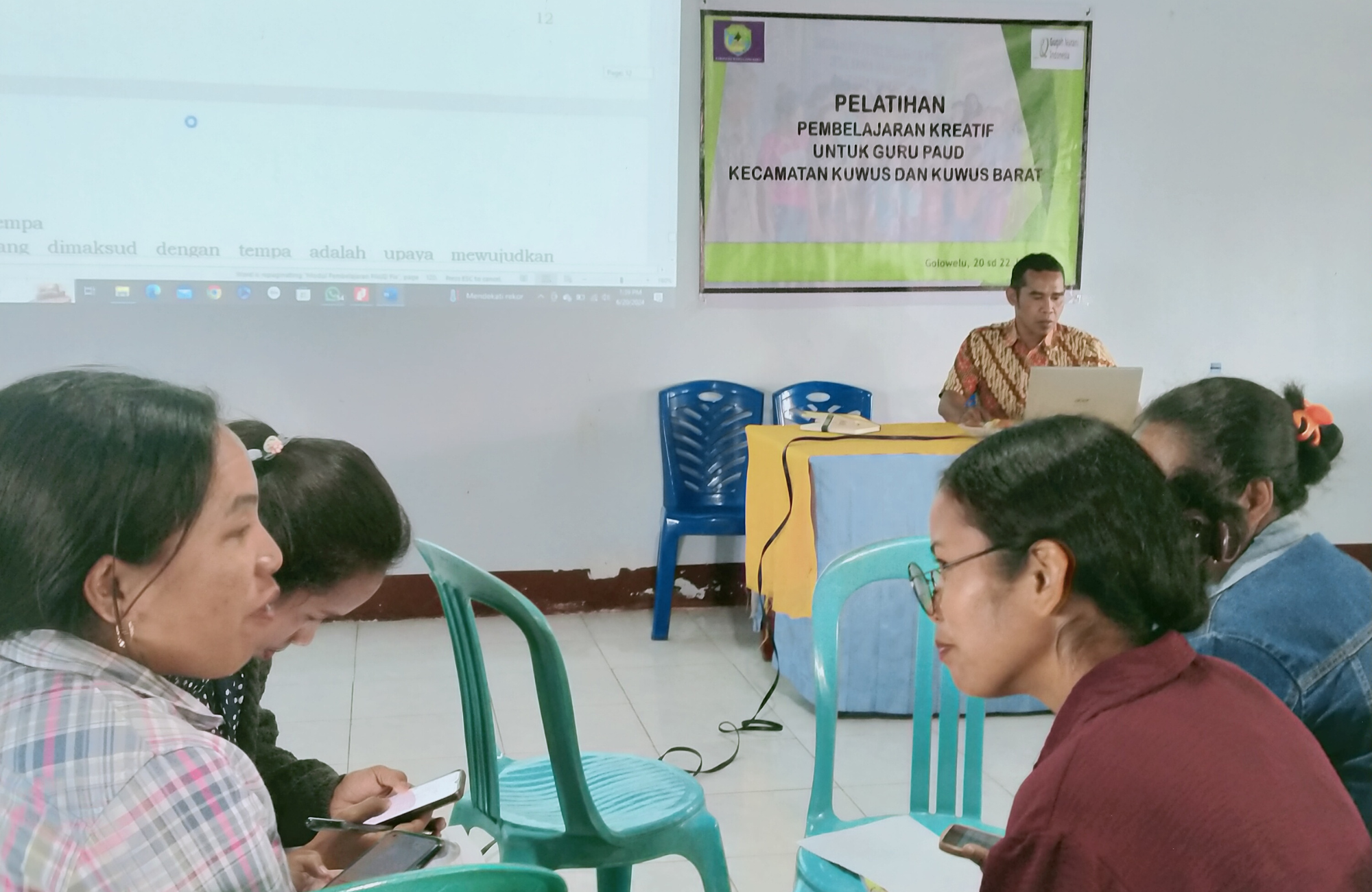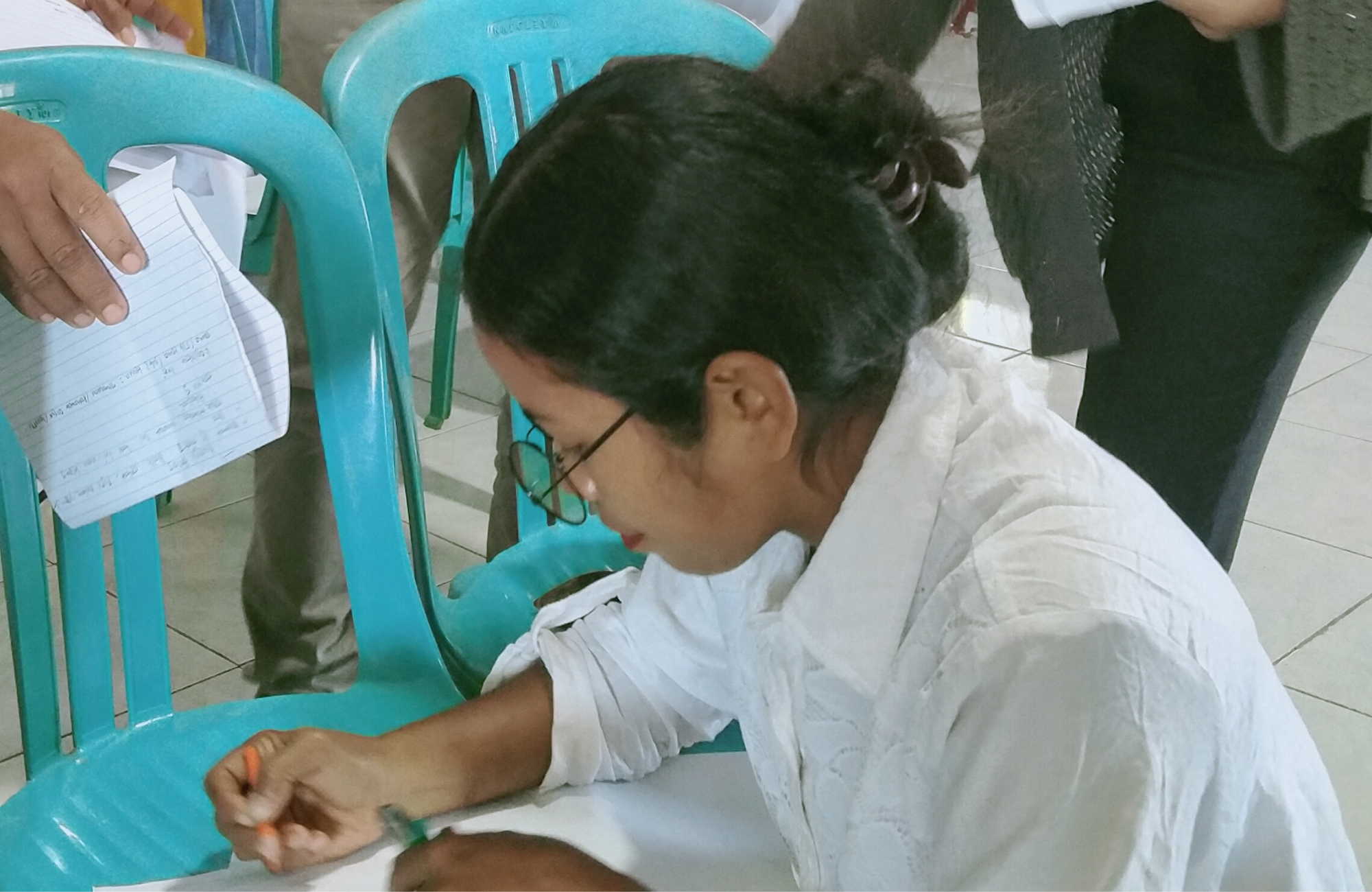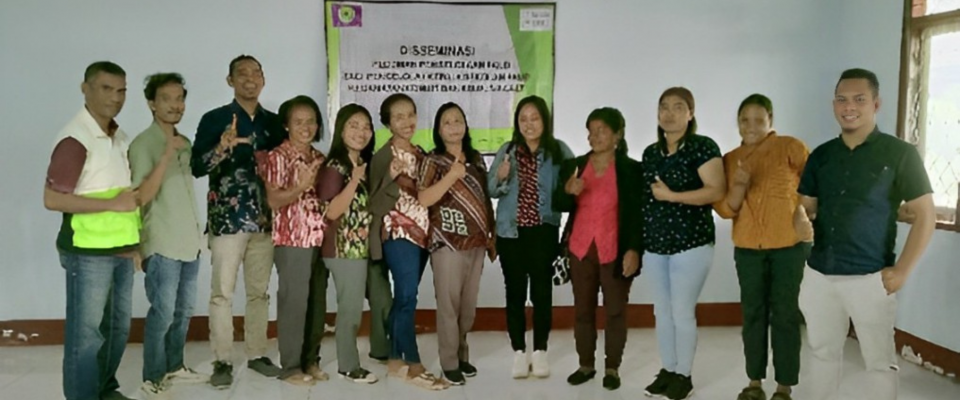Pada kenyataannya, penyelenggaraan PAUD di Kabupaten Manggarai Barat, Provinsi NTT masih berkutat dengan sejumlah masalah. Salah satu masalah yang krusial dan mendesak adalah kualifikasi dan kompetensi pendidik dan pengelola PAUD yang terkategori rendah. Kualifikasi akademik dan kompetensi pendidik serta pengelola PAUD di Kabupaten Manggarai Barat seringkali tidak memenuhi standar yang diharapkan. Banyak guru PAUD yang belum mendapatkan pelatihan profesional yang cukup, sehingga kemampuan mereka dalam mendidik dan mengelola kelas masih kurang optimal. Selain itu, pengelola PAUD sering kali belum memiliki kesiapan yang matang dalam menyediakan tenaga pendidik yang profesional, sarana dan prasarana yang memadai, serta sumber daya finansial yang cukup untuk menjamin kesejahteraan pendidik dan keberlangsungan lembaga PAUD.

Untuk mengatasi masalah rendahnya kualifikasi dan kompetensi pendidik dan pengelola PAUD tersebut, Gugah Nurani Indonesia Manggarai Barat CDP menyelenggarakan dua kegiatan, yakni Pelatihan Pembelajaran Kreatif Untuk Guru PAUD pada tanggal 20 sampai 22 Juni 2024 dan Diseminasi Pedoman Pengelolaan PAUD bagi Pengelola/Kepala Sekolah PAUD di Kecamatan Kuwus dan Kuwus Barat Kabupaten Manggarai Barat pada tanggal 25 Juni 2024. Kedua kegiatan ini menghadirkan narasumber dari Program Studi PG PAUD Universitas Katolik Indonesia Santu Paulus Ruteng, Bapak Fransiskus De Gomes, S.Fil., M.Pd.
Kegiatan pelatihan ini diawali dengan mengukur kemampuan awal peserta (pretest). Hari pertama, peserta dilatih untuk mengelola administrasi peserta didik dan mengembangkan perangkat pembelajaran. Hari kedua, para guru melakukan simulasi pembelajaran sesuai dengan perangkat pembelajarannya masing-masing. Hari ketiga, para guru dilatih untuk mengembangkan instrumen penilaian perkembangan anak, mengumpulkan data, menganalisis data, dan membuat raport perkembangan anak.
Sedangkan, kegiatan bagi pengelola PAUD bertujuan meningkatkan pemahaman dan keterampilan pengelola dalam mengorganisasikan kurikulum PAUD, mengorganisasikan pendidik dan tenaga kependidikan PAUD, mengorganisasikan sarana dan prasarana esensial bagi penyelenggaraan PAUD, mengorganisasikan program kegiatan PAUD, dan mengelola pembiayaan PAUD. Dalam praktik kerja, para peserta dilatih untuk menyusun Rencana Kerja Anggaran (RKA), program kerja tahunan, instrumen supervisi program, dan manajemen sarana dan prasarana.
Pada tahap akhir dari setiap kegiatan ini, narasumber memberikan penilaian terhadap capaian kompetensi yang diperoleh peserta pelatihan. Fokus penilaian akhir ini adalah pemahaman terhadap konsep dan keterampilan menyelenggarakan PAUD berkualitas. Hasil penilaian terhadap pemahaman dan keterampilan guru dalam menyelenggarakan pembelajaran menunjukkan bahwa: pertama, para guru telah memahami dan mampu membuat serta menggunakan administrasi siswa secara baik. Kedua, para guru dapat mengembangkan perangkat pembelajaran, Rencana Pelaksanaan Pembelajaran Harian (RPPH) dan mampu mengembangkan Alat Permainan Edukatif (APE) berbasis potensi lingkungan sekitar. Ketiga, para guru telah memahami dan membuat pembelajaran yang menyenangkan bagi anak. Keempat, para guru mampu mengembangkan instrumen penilaian, mengumpulkan dan menganalisis data, serta rapor perkembangan anak.
Catatan yang perlu diperhatikan oleh guru PAUD, yaitu:
Perlu mengembangkan desain ragam dan jenis main yang bervariasi agar tidak membosankan anak dalam pembelajaran.
Komitmen para guru untuk melaksanakan pembelajaran perlu ditingkatkan. Saran ini didasarkan pada kenyataan bahwa setelah mengikuti pelatihan, kompetensi guru menjadi baik namun dalam praktiknya, guru belum melaksanakan pembelajaran sesuai dengan kompetensi yang mereka miliki. Oleh sebab itu, perlu kerja sama lintas sektor untuk meningkatkan motivasi dan komitmen guru PAUD dalam melaksanakan pembelajaran secara berkualitas.

Hasil penilaian akhir terhadap pengelola PAUD secara konseptual, para pengelola telah memahami manajemen pengelolaan PAUD secara berkualitas yang mencakup manajemen kurikulum, pendidik dan tenaga kependidikan, sarana dan prasarana, pengelolaan, dan pembiayaan. Namun pada tataran implementatif, para pengelola belum siap terutama terkait sarana prasarana dan pembiayaan. Oleh sebab itu, para pengelola perlu bekerja sama dengan berbagai pihak untuk mengatasi hal ini.
Catatan korektif atas pencapaian kompetensi pendidik dan pengelola PAUD dari pelatihan ini menjadi tugas banyak pihak. Dengan pendekatan yang holistik dan berkelanjutan, serta kerjasama antara pemerintah, masyarakat, dan organisasi non-pemerintah, diharapkan kualitas penyelenggaraan PAUD di daerah tersebut dapat meningkat. Anak-anak usia dini adalah masa depan bangsa, dan investasi dalam pendidikan mereka adalah investasi untuk masa depan yang lebih baik.
Diedit oleh: Tim FD
